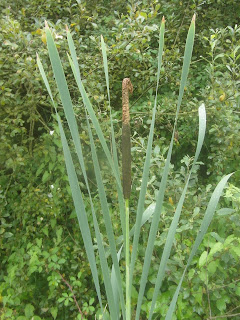This blog may help people explore some of the 'hidden' issues involved in certain media treatments of environmental and scientific issues. Using personal digital images, it's also intended to emphasise seasonal (and other) changes in natural history of the Swansea (South Wales) area. The material should help participants in field-based modules and people generally interested in the natural world. The views are wholly those of the author.
Sunday, 30 August 2015
Wednesday, 26 August 2015
A Name For It?
I have never been able to envision things in my 'mind's eye' and do not have visual dreams. In spite of this I have had a reasonably successful career in the behavioural sciences with much of my work based on video images of animals. I am also not too bad at 'putting names to faces', so long as the viewing gaps are not too long. Having scored a measly 9 out of 40 on a test (https://www.google.co.uk/webhp?sourceid=chrome-instant&rlz=1CAACAG_enGB592GB592&ion=1&espv=2&ie=UTF-8#q=BBC+mind's+eye), it looks like I have a condition now termed 'Aphantasia' (which is not an aversion to Disney but I willingly admit to that also). It does suggest that I remember things in a different way from most folk and could account for my enthusiasm for digital photography (it's like having an electronic mind's eye).
Monday, 24 August 2015
Sunday, 23 August 2015
Friday, 21 August 2015
Messages and Money?
The news that President Obama has given a green light to Shell's Arctic oil exploration has been greeted with alarm (http://www.theguardian.com/environment/2015/aug/18/shell-gets-final-clearance-to-begin-drilling-for-oil-in-the-arctic). He may well have been convinced by economic arguments such as, with proper safeguards, the extracted oil would a) save on the environmental costs of its transport and b) make the US less dependent on foreign supplies of the black stuff. He may have also added into the equation, a belief that the American public would take quite a long time to wean off petrol-fueled automobiles. Having said all that, this agreement will not help in his reported mission to make a start on driving down world-wide greenhouse gas emissions. The Arctic is regarded by many people as being a pristine, sensitive area where oil extraction problems could well be magnified and appealing to the world to start countering climate change sits oddly with this move. Perhaps the message should be more important than monetary considerations?
Wednesday, 19 August 2015
Monday, 17 August 2015
Friday, 14 August 2015
If You Must Burn Hydrocarbons?
The recent twists of the fracking 'debate', raises in my mind the question "why, in the UK, we appear so resistant to incinerating rubbish in state of the art establishments (like the one in Rotterdam harbour above) to generate electricity?" Masses upon masses of 'free' plastic packaging is collected by councils from outside people's homes every week in this country- some of it to be exported before, in some cases, returning to our shores. If we must burn hydrocarbons to keep the lights on (and I am not especially enthusiastic about doing so) why not use this material with carbon capture and other cleaning processes to reduce its negative effects?
Thursday, 13 August 2015
Not So Much a Northern Powerhouse: More a Land of Fracking Resisters?
The threat by the UK government to 'step in' if pesky councils in far-off places like Lancashire and Yorkshire 'drag their heels' over giving a rapid go-ahead to the Fracking Industry (http://www.theguardian.com/environment/2015/aug/13/government-will-step-in-if-councils-dont-fast-track-fracking-applications), sits strangely with their simultaneous strengthening of local people's abilities to object to land-based wind turbines (I know that that has been much 'discussion' about the relative merits of these 2 technologies but many of the comparisons are a bit dodgy on both sides). The Secretary of State for the Environment has promised to "deliver shale" which is not strictly true as she actually means giving the extractors a quick opportunity to squeeze out hydrocarbons from these deposits even if locals object to the disturbance. Other sound bites that could be used might include 1. "Taking materials from under your land, whether you approve or not"; 2. "Getting hydrocarbons more cheaply to burn and add to global warming"; 3."Possibly increasing the incidence of seismic events and water contamination in your locality"; 4. "Resistance is useless" and 5. "Getting rid of that green crap". Actually, 5 has been used before.
Wednesday, 12 August 2015
The Great British Food Throw Away
There an impressive overview on food wastage including noting that, if waste was cut by a quarter (and if we could send it efficiently to where it was both needed and accepted), we could solve world hunger (http://www.theguardian.com/environment/ng-interactive/2015/aug/12/produced-but-never-eaten-a-visual-guide-to-food-waste). Apparently, the world wastes 1.3 billion tonnes of perfectly good food each year. In the UK, some 45% of fruit and vegetables (a quarter of melons are never eaten), 35% of seafood and fish, 30% of cereals and a full fifth of both dairy and meat products all go to waste. The average UK family is said to waste £700 worth of food every year. I suspect, however, that the amounts wasted are highly variable (and not especially helped by 'sell-by' dates). Waste can also be measured in consumed water (at a premium in some parts of the globe), generated carbon dioxide et cetera. Even developing countries may also generate more waste by not having facilities for effective preservation of foods.
Earning Their Stripes
There has been much debate about zebra's stripes including whether they are white on black, vice versa or neither. There has also been speculation on whether they are temperature-related (zebras from warmer locations have more) and whether they help reduce predation by making the animal difficult to track and/or make biting flies less effective. The tracking idea has been recently tested by a PhD student, Anna Hughes, getting humans to try to follow a range of images including stripes (http://www.bbc.co.uk/programmes/p02zdksj). She casts some doubt on the notion that the stripes generate motion dazzle but human eyes are not quite the same as those of lions and biting flies.
Tuesday, 11 August 2015
Sunday, 9 August 2015
Seeing the Changes 998
More stuff at Oxwich with a Dune waxcap (Hygrocybe conicoides) fungus and flowering Purging flax (Linum catharticum). There was lots of material in fruit including Crab apple (Malus sylvestris); Burnet rose (Rosa pimpinellifolia) and Rowan (Sorbus aucuparia). A day-flying Silver 'Y' moth (Autographa gamma) explored whilst a male Common blue butterflt (Polyommatus icarus) hung around hopefully. The Six-spot burnet moth (Zygaena filipendulae) larvae pupated and a hunting wasp (Ammophila subulosa) was busy in the dunes.
Friday, 7 August 2015
Monday, 3 August 2015
People, People Everywhere?
The Guardian has strongly advocated the view that 'limiting population growth, on its own' will not reduced carbon emissions because more 'advanced' countries, with declining birthrates, counter-intuitively produce more green house gases (http://www.theguardian.com/commentisfree/2015/aug/02/the-guardian-view-on-population-control-empowering-women-may-not-save-the-environment). This link may well be currently true (and shouldn't be used by developed nations to escape responsibility) but populations in 'developing' nations generally seem to at least aspire to the living standards of the 'west'. It is claimed that there are more people currently alive on the planet than in all of recorded history combined. Some of this may well be down to people living longer and, no, I don't advocate not trying to find better ways of controlling disease. But more people do require more resources (land, food, water et cetera) and even in the 'depopulating, advanced economies' the rest of the species on the planet (on which we depend) appear to be pressured by anthropogenic effects. So perhaps limiting population growth (as an aspiration) may not be a bad thing?
D Day?
'Experts' have suggested that the sun-starved inhabitants of the UK need to take Vitamin D supplements in order to remain healthy (http://www.theguardian.com/lifeandstyle/2015/aug/02/britain-not-sunny-enough-healthy-vitamin-d-levels-supplements). This seems especially the case this summer but I wonder if they will concomitantly modify the advice on sun screens?
Sunday, 2 August 2015
Copper-bottomed schemes?
News that Zambian villagers are taking a copper-mining company to court over pollution that they claim is damaging their health (http://www.theguardian.com/global-development/2015/aug/01/vedanta-zambia-copper-mining-toxic-leaks). It does appear that extractors of minerals have to be more careful about their activities in a world where perceived problems quickly get out into the world's media. This is, in general, no bad thing as it should keep organisations 'on their toes'.
Creepy-Crawley Celebs?
The Royal Society of Biology is apparently going to ask Britons to vote for their 'favourite bug' as a means of drawing attention to the effects of pesticides, habitat loss and climate change on such organisms (http://www.theguardian.com/environment/2015/aug/02/insect-poll-highlights-uk-threatened-species). This is all very timely but I can't help but feel that the vote will not be as meaningful as the recent vote for the favourite bird (the European robin, a species that all the people voting in that poll will have seen). The trouble with invertebrates is that there are many, many more candidates and most people will not have even noticed more than a few of them. Ladybirds might get a lot of votes from the children's book series or the nursery rhyme but, I suspect, spiders (in spite of also having a nursery rhyme) have less positive PR. Wasps are also generally misunderstood. Many of the candidates listed in the article seem to be the bigger and brighter species. How many votes is the Beautiful demoiselle (Calopterix virgo) likely to glean?
Subscribe to:
Comments (Atom)
-
I n the UK and US, a pparently popular and successful vegan/vegetarian restaurants are reportedly closing or adding meat to their menus ( ...
-
Early ripening fruit may seem convenient but some folk think it confirms environmental stress. There's also a possibility th...






































%20mating%20NWCW.jpg)

